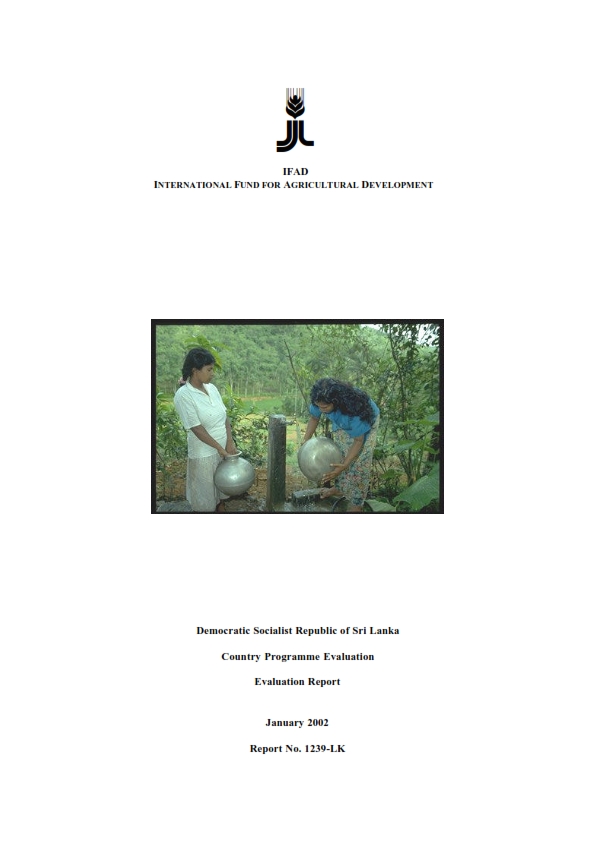Sri Lanka Country Programme Evaluation - IOE

Sri Lanka Country Programme Evaluation
IFAD-supported interventions have, in general, targeted provinces with the highest incidence of poverty. Achievements in terms of infrastructure, agricultural development and credit have been significant: road construction has lead to improved quality of life, access to social services and markets, cheaper transport costs, and wider employment and enterprise opportunities. Households have improved water supplies closer to home, which in turn have reduced the incidence of water-borne diseases. Paddy and tea production initiatives and the rehabilitation of irrigated tanks have contributed to small farmers’ livelihoods. Savings and credit schemes have had modest effects on poorer families yet beneficiaries value the stronger empowerment gained through savings groups. Monitoring and evaluation was inadequate in most projects, however, and their full impact on poverty was difficult to assess. Yet, in some instances, better-off farmers benefitted more than poorer farmers and some interventions were not pro-poor: for example, the agro-well programmes, which enjoy a 20-30 per cent subsidy, were beyond the reach of poorer farmers unable to muster adequate resources to benefit from the subsidy.